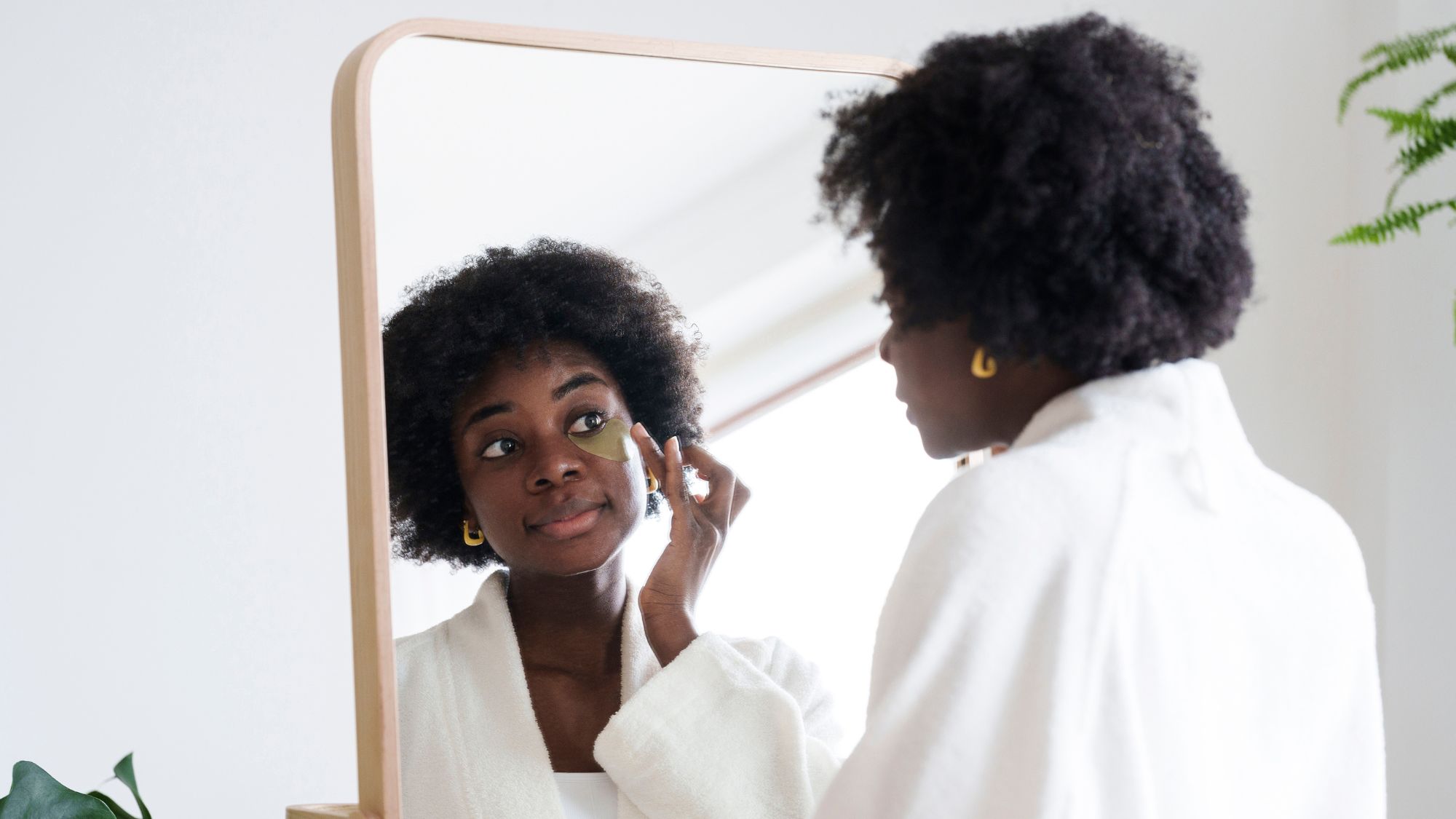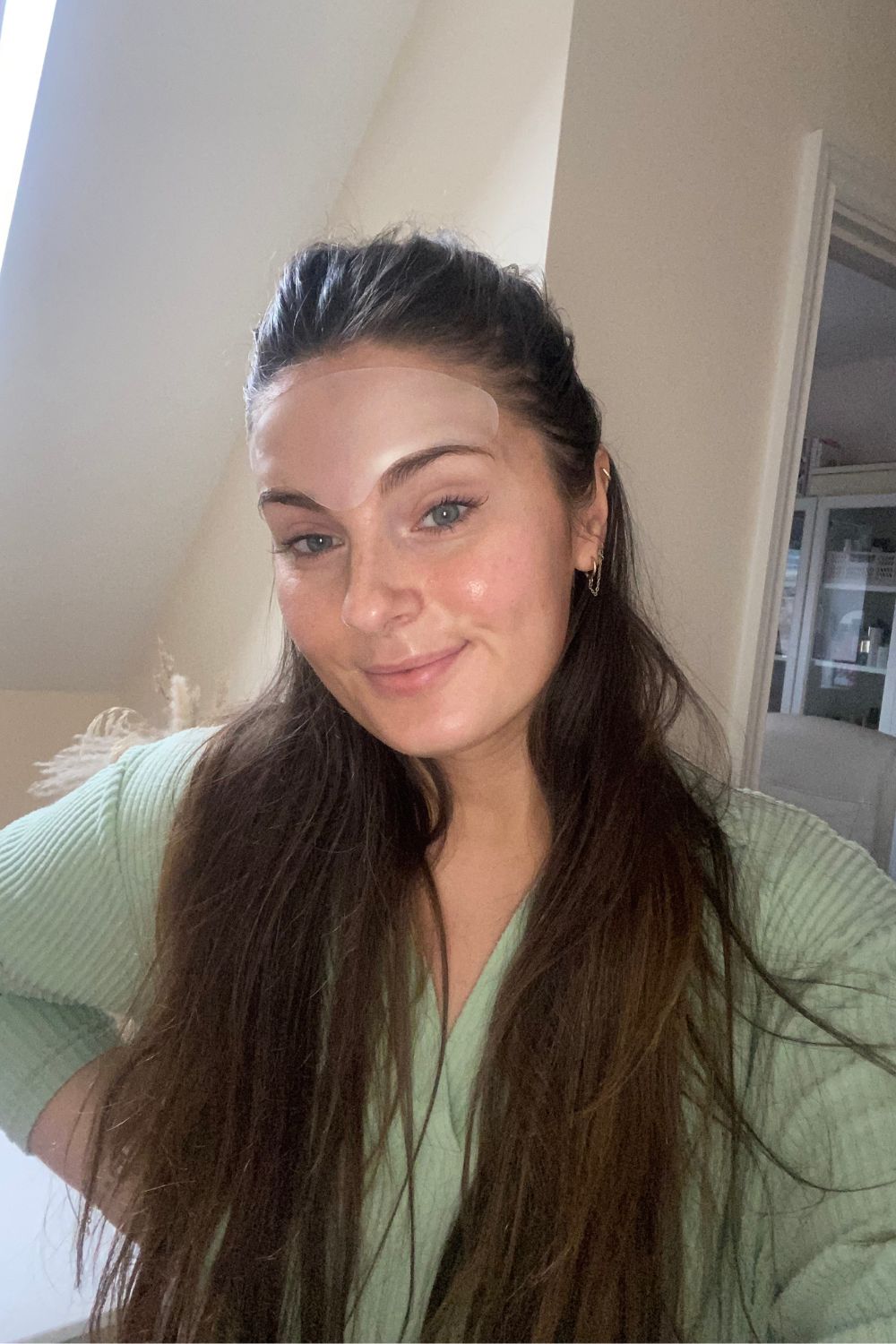People are using face tape to minimise wrinkles, but does it work? After asking a plastic surgeon, I tried it for myself
Turns out, TikTok might've duped us on this one

Celebrity news, beauty, fashion advice, and fascinating features, delivered straight to your inbox!
You are now subscribed
Your newsletter sign-up was successful
Everyday it feels like there’s a new product or device on the market promising to minimise fine lines and wrinkles. The latest trend sweeping the internet hoping to minimise wrinkles? Face taping. In fact, my social media pages are flooded with it.
Essentially, face taping uses a special kind of adhesive patch to, quite literally, restrict muscles contracting and wrinkles from 'worsening' overnight. In theory it sounds great, right? Forget retinol and other face serums, face taping is pitched as the simple quick-fix to skin ageing. But, trust me when I say it might not be the cure-all that it's made out to be.
With the help of a top plastic surgeon, I decided to explore exactly what face taping is and to give it a go myself to determine whether it actually works.
What is face taping?
Face taping is pretty much as it sounds. It essentially involves applying sticky patches to various areas on the face (like forehead, smile lines and forehead) to limit muscle movement, which in turn, aims to prevent lines and smooth out the skin. Unlike things like acne patches, these silicone patches don't contain any active ingredients; the sole aim is to restrict muscles contracting.
But why has it become so popular? One word: TikTok. It probably comes as no surprise that it was made popular on the platform, claiming to reduce the appearance wrinkles in just a number of days.
Does face taping work?
So this answer isn't a plain yes or no. After having tried it for myself, I can say it definitely works while you sleep because it absolutely constricts the muscles responsible for reinforcing wrinkles. "Face taping works on the premise that you are taping over the areas where wrinkles are most prominent, namely the forehead, and if the tape is left overnight, it will minimise the amount of movement and contraction of those muscles, therefore forming less wrinkles," explains plastic surgeon, Dr Ashwin Soni. Although in theory it does make sense, Dr Soni notes that it's not a great long-term solution.
And my results back up his thoughts. While my movement was restricted while sleeping, the results weren't good enough for me to A. stop wearing skincare overnight in order for the patch to stick and B. wear it every night, which is what it requires.
Celebrity news, beauty, fashion advice, and fascinating features, delivered straight to your inbox!
In fact, although it might work as a fast solution for minor visible results, it could be deepening lines over time. "What you are doing by taping down the wrinkles, and adding force to the area, is that you are actually making your muscles work harder overnight, as when you are contracting in your sleep, the muscles are working against the resistance of the tape," Dr Soni says. "Compare it to when you lift weights, the heavier the resistance, the harder the muscle works, and therefore the more the muscle grows. So theoretically, you could actually increase the size of your forehead muscles, which is the complete opposite of what this viral social-media hack is supposed to do," he adds. For him, it can do more harm than good.
In addition to this, if you have sensitive skin, you might want to skip this trend. "You can potentially damage the skin barrier by constantly removing tape every morning after sleeping, which can lead to redness and irritation," Dr Soni explains.

Treatments similar to face taping
If you're looking to improve your fine lines and wrinkles longer-term then there are a bunch of in-clinic treatments that can give more consistent results. First things first, a consistent skincare routine can work wonders for improving concerns. Get a cleanser, decent serum (containing ingredients like hyaluronic acid, peptides or retinoids) and most importantly, sunscreen.
Aside from skincare, "the most common injectable for this area would be Botulinum toxin [commonly referred to Botox, which is a brand name], which would be injected to stop the muscle from contracting, and therefore soften the lines," Dr Soni explains.
If you're not quite ready for Botox, you can also try polynucleotides. "It's an innovative injectable (my chosen brand is Ameela) derived from extracted salmon DNA, which boosts collagen and elastin and improves fine lines and the overall quality of the tissues by working on various cellular pathways," he adds. Another injectable to try is skin boosters, Dr Soni uses Teoxane Redensity I, which is effective at "boosting collagen and elastin, and providing the vitamins, minerals, antioxidants, and amino acids to the skin to help improving fine lines and wrinkles".
Finally, there are also devices that can help minimise wrinkles, such as fractional microneedling devices and ultrasound-based devices.
The takeaway
Face taping patches can temporarily decrease the appearance of fine lines but they're not all that convenient, and the results aren't long-term, plus there's the chance you might cause muscles to work overtime.
My biggest reservation (besides the lack of research) is that you aren’t supposed to wear skincare under the patches otherwise they don’t stick. I assumed that one of the benefits to these was increased penetration of product, but that's not the case. If one thing is for certain, sticky patches are never going to be more effective than consistent skincare, especially proven ingredients like retinoids. What I will say though, if you’re a side sleeper and want to reduce chest fine lines, I do think the patches yield good short-term results for that.
To add to that, it's definitely a privilege to afford things like Botox and expensive serums, so if you want to try this out as a short-term solution then you do you. But it's well worth also getting yourself a retinoid and good sunscreen that you'll use consistently.
Tori is a freelance beauty journalist and contributor for Marie Claire. She has written for various titles, including Allure, Glamour, Elle, Refinery29, Brides, and more. Currently training to be a nail tech, Tori is a total nail enthusiast and always has time to talk all things nail art. When she’s not writing about beauty and testing products, Tori can be found walking her rescue dog Pip, drinking great coffee, and eating as many croissants as humanly possible.